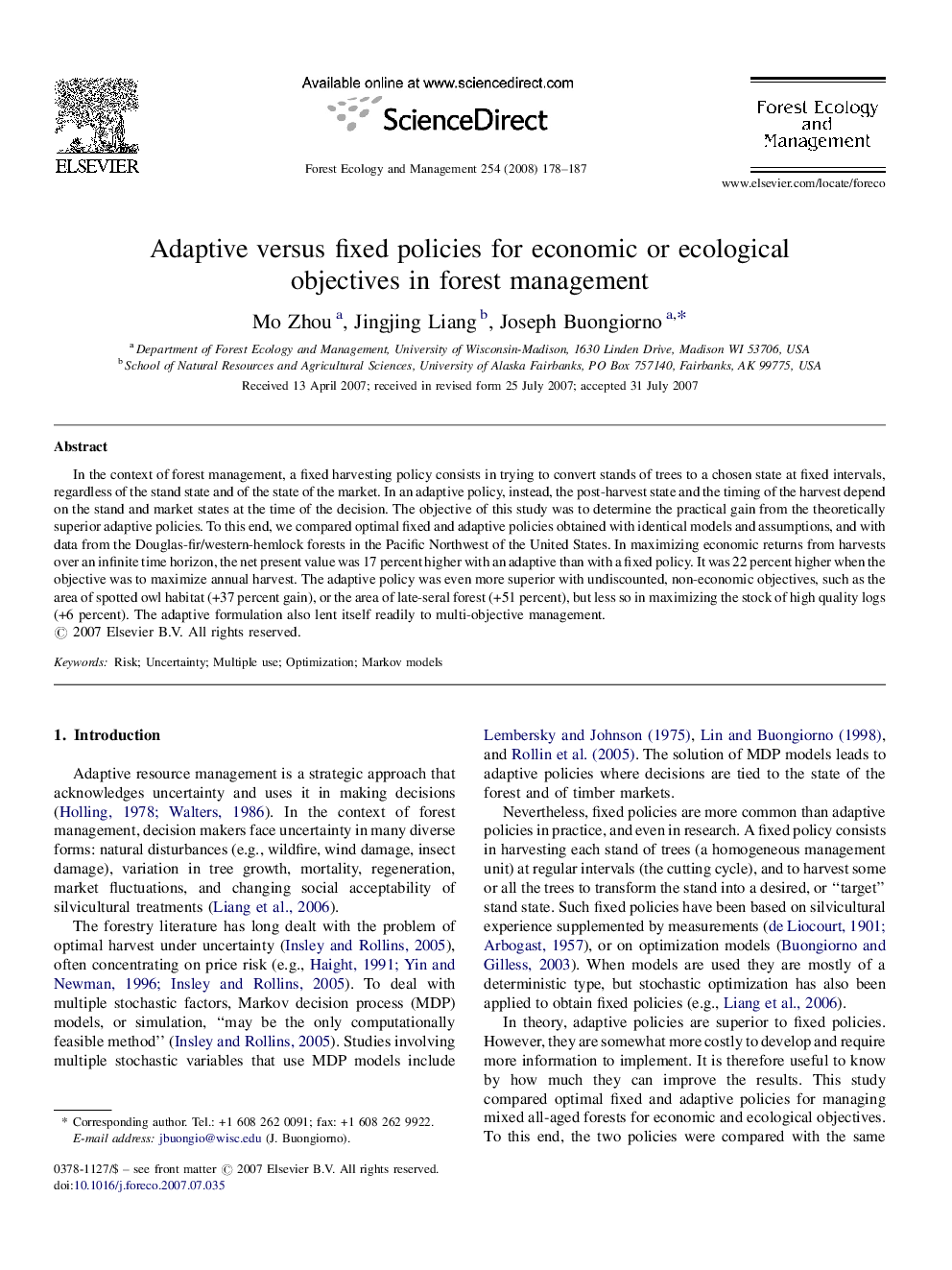| کد مقاله | کد نشریه | سال انتشار | مقاله انگلیسی | نسخه تمام متن |
|---|---|---|---|---|
| 90100 | 159366 | 2008 | 10 صفحه PDF | دانلود رایگان |
عنوان انگلیسی مقاله ISI
Adaptive versus fixed policies for economic or ecological objectives in forest management
دانلود مقاله + سفارش ترجمه
دانلود مقاله ISI انگلیسی
رایگان برای ایرانیان
کلمات کلیدی
موضوعات مرتبط
علوم زیستی و بیوفناوری
علوم کشاورزی و بیولوژیک
بوم شناسی، تکامل، رفتار و سامانه شناسی
پیش نمایش صفحه اول مقاله

چکیده انگلیسی
In the context of forest management, a fixed harvesting policy consists in trying to convert stands of trees to a chosen state at fixed intervals, regardless of the stand state and of the state of the market. In an adaptive policy, instead, the post-harvest state and the timing of the harvest depend on the stand and market states at the time of the decision. The objective of this study was to determine the practical gain from the theoretically superior adaptive policies. To this end, we compared optimal fixed and adaptive policies obtained with identical models and assumptions, and with data from the Douglas-fir/western-hemlock forests in the Pacific Northwest of the United States. In maximizing economic returns from harvests over an infinite time horizon, the net present value was 17 percent higher with an adaptive than with a fixed policy. It was 22 percent higher when the objective was to maximize annual harvest. The adaptive policy was even more superior with undiscounted, non-economic objectives, such as the area of spotted owl habitat (+37 percent gain), or the area of late-seral forest (+51 percent), but less so in maximizing the stock of high quality logs (+6 percent). The adaptive formulation also lent itself readily to multi-objective management.
ناشر
Database: Elsevier - ScienceDirect (ساینس دایرکت)
Journal: Forest Ecology and Management - Volume 254, Issue 2, 25 January 2008, Pages 178-187
Journal: Forest Ecology and Management - Volume 254, Issue 2, 25 January 2008, Pages 178-187
نویسندگان
Mo Zhou, Jingjing Liang, Joseph Buongiorno,